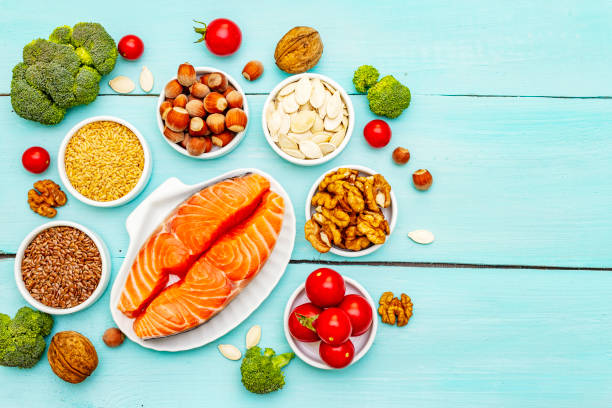Food like greasy fries, hamburgers, waffles stuffed with chocolate, and fizzy drinks are integral to modern life. Although you may try to stay clear of them, you eat them and call them a “weekend binge” or “cheat meal.” Although it’s OK to indulge in them occasionally, the problem comes when the temptations spiral way out of hand. A major cause of frequent ailments that people suffer from today is elevated cholesterol levels, which, when not taken care of, can cause your heart health to go for an outing. Cholesterol is present throughout the body. It plays an essential function in triggering various bodily processes, including food digestion and releasing hormones, among other things.
There are two kinds of cholesterol. HDL (High-density lipoproteins), also known as “good cholesterol,” and LDL (Low-density lipoprotein) or “bad cholesterol.” LDL is responsible for transporting every fat molecule throughout the body. An excessive amount of this type of cholesterol can lead to many health issues, including heart-related problems. A layer of destructive cholesterol forms plaque on the arteries walls. This can make it hard for blood to circulate at its average pace. This also contributes to high blood pressure and, in the worst cases, stroke. Did you know that the build-up of plaque can be reversed? All you need to do is alter your lifestyle and diet. There are certain beverages and foods which can help regulate your cholesterol levels.
Foods And Drinks To Manage Cholesterol Levels:
1. Lemon Water: Lemon water is an excellent soluble fiber source, acting as a sponge. It absorbs water from the digestive tract and then forms a dense mass. It absorbs bad cholesterol, or LDL, and eliminates it from your body.
2. Pomegranate juice: Pomegranate juice contains antioxidants. They are believed to reduce the formation of hardening of the arteries and could even reverse the progression of the issue. Antioxidants are believed to offer numerous benefits to heart health, such as reducing the amount of low-density lipoprotein (LDL, also known as “bad”) cholesterol.
3. Walnuts: Walnuts contain a lot of vitamin B as well as vitamin E, as well as omega 3. The consumption of walnuts could slow plaque formation in your arteries and help prevent blood clots from occurring. Additionally, omega-3s can reduce the triglycerides in the bloodstream and safeguard the heart by preventing the development of abnormal heart rhythms.
4. Oats: One of the most effective ways to lower cholesterol levels is to eat a bowl of oatmeal. Oatmeal has soluble fiber, which helps to lower LDL (also known as bad cholesterol). The fiber in it can help reduce the cholesterol’s absorption into your bloodstream. There are different exciting oatmeal recipes you can experiment with.
5. Flaxseeds: Flaxseeds are packed with fiber and omega-3 fatty acids, which can lower harmful cholesterol levels and decrease plaque build-up. As per the publication “Healing Foods, published by DK Publishing House, “Flaxseeds are a great source of soluble mucilaginous (gum-like) fiber that can lower unhealthy cholesterol (LDL) and balance blood sugar levels. It also acts like a hunger suppressant and helps you feel full. Their high omega-3 fatty acids can help lower the blood’s undesirable fats (triglycerides), reducing the risk of stroke and heart attack.”
Be sure to eat the foods listed in their original forms as part of a healthy diet to meet your health-related goals. Talk to your physician before adding these drinks and nourishment to your everyday food regimen.


